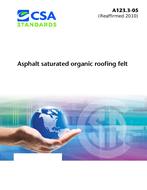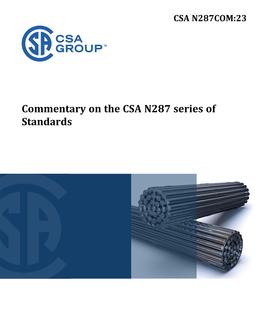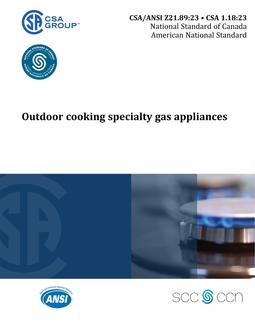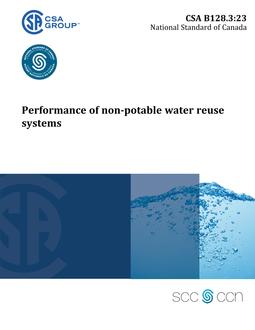
CSA A123.3-05 (R2015)
- Comments Off on CSA A123.3-05 (R2015)
- CSA
Click here to purchase
Preface
This is the third edition of CSA A123.3, Asphalt saturated organic roofing felt. It supersedes the second edition, published in 1998, and the first edition, Asphalt or Tar Saturated Organic Roofing Felt, published in 1979. It is one of a series of CSA Standards on bituminous roofing materials (CSA A123.1 to A123.5). The CSA A123 series of Standards are written in SI (metric) units, which are in conformance with CAN/CSA-Z234.1.
1 Scope
1.1This Standard covers asphalt saturated organic roofing felt, with perforations, to be used with roofing asphalts conforming to CSA A123.4 in the construction of built-up roofing membranes, without perforations, applied as an underlayment beneath asphalt shingles, woods shakes and shingles, tiles, and other roof coverings.
1.2The following types of roofing felts are addressed by this Standard:(a) Type 1 – perforated roofing felt that is used in the construction of built-up roofing membranes. It is commonly referred to as No. 15 Felt Perforated.(b) Type 2 – plain, non-perforated roofing felt used as an underlayment beneath asphalt shingles, wood shakes and shingles, tiles, and other steep slope roof coverings. It is commonly referred to as No. 15 Plain Felt.(c) Type 3 – plain, non-perforated roofing felt used as an underlayment beneath asphalt shingles, wood shakes and shingles, tiles, and other steep slope roof coverings. It is commonly referred to as No. 30 Plain Felt.
1.3The values given in SI (metric) units are the standard. The values given in parentheses are for information only.
1.4In CSA Standards, “shall” is used to express a requirement, i.e., a provision that the user is obliged to satisfy in order to comply with the standard; “should” is used to express a recommendation or that which is advised but not required; “may” is used to express an option or that which is permissible within the limits of the standard; and “can” is used to express possibility or capability.Notes accompanying clauses do not include requirements or alternative requirements; the purpose of a note accompanying a clause is to separate from the text explanatory or informative material.Notes to tables and figures are considered part of the table or figure and may be written as requirements. Annexes are designated normative (mandatory) or informative (non-mandatory) to define their application.
Product Details
- Published:
- 09/22/2005
- Number of Pages:
- 20
- File Size:
- 1 file , 370 KB
- Product Code(s):
- 2417688, 2018354, 2417688



